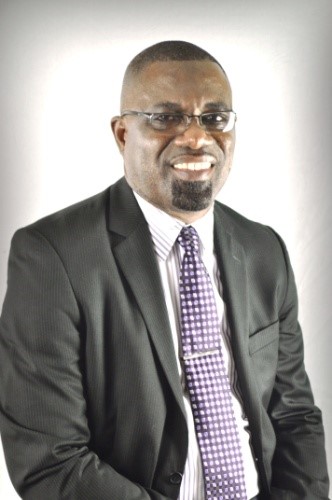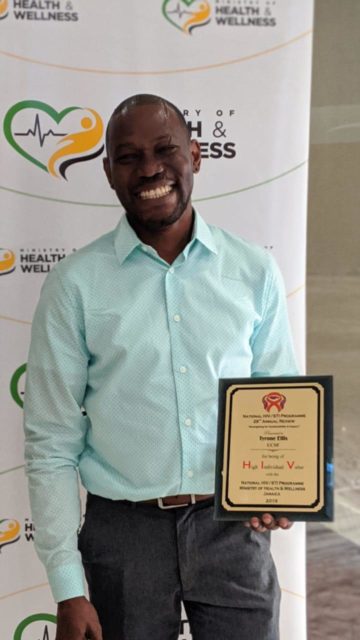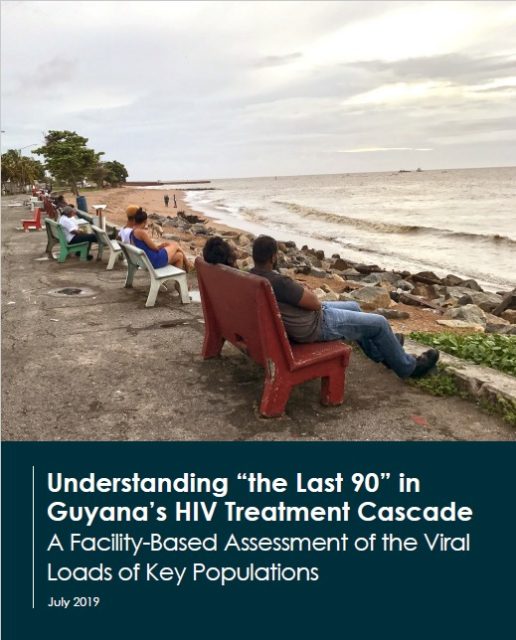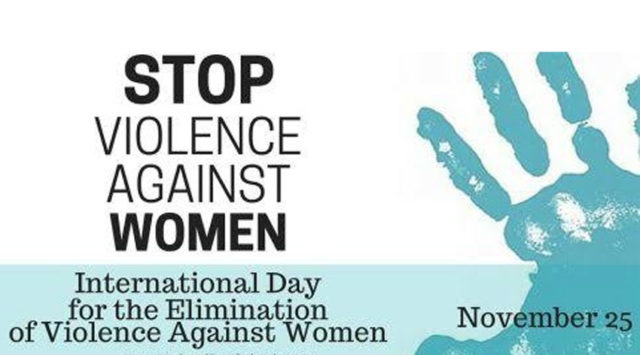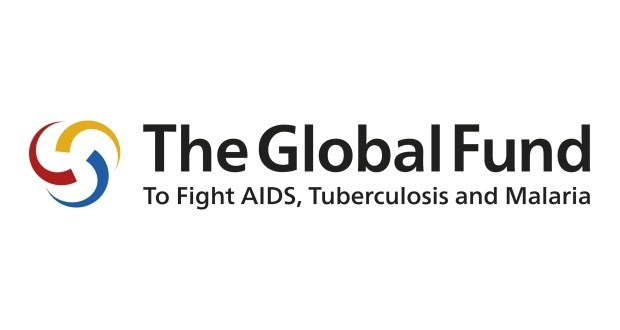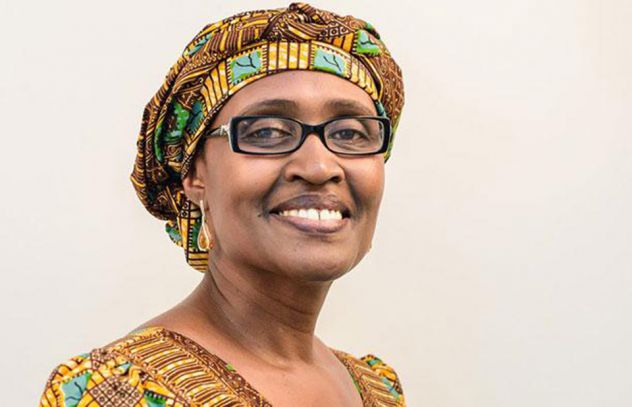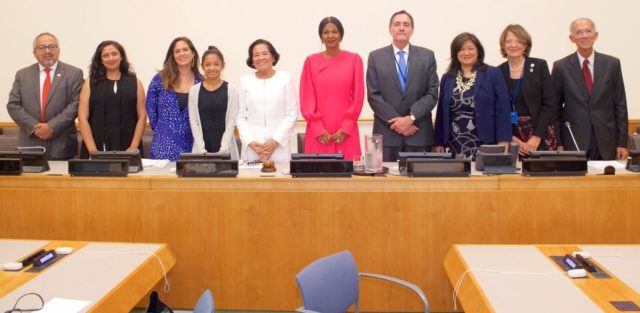As this is the last newsletter for 2019, I would like to reflect on our achievements in 2019 and highlight key remaining challenges. We had set ourselves an ambitious agenda for 2019 with a heavy focus on improving coordination and governance and supporting county efforts to implement innovative approaches for prevention, care and treatment.
Achievements
Following extensive consultations and dialogue, we have successfully elaborated the fourth iteration of the Caribbean Regional Strategic Framework on HIV and AIDS 2019-2025 and a Monitoring and Evaluation Framework with indicators and targets, and a two-year implementation plan. The CRSF 2019-2025 provides high-level guidance to ensure that resources are directed towards effective interventions that maximize the impact of regional efforts and provide good value for money and to respond to the remaining gaps in the response.
The capacity of National AIDS Programme Managers and Civil Society Partners has been increased to deliver a more effective response through the annual meeting of NAP Managers and Key Partners, Share Fairs, learning exchanges, series of webinars, documentation and sharing of information.
We successfully implemented the CARICOM-PANCAP Global Fund grant 2016-2019, PEPFAR-USAID Coordination and Knowledge Management programme activities 2018-2019, and the PANCAP component of the 10th EDF grant.
We mobilised additional resources from the Global Fund for a Joint CARICOM/PANCAP-CVC-COIN Caribbean Multi-country grant and leveraged additional resources from PEPFAR-USAID by directing funding for the knowledge management programme to CARICOM thus increasing efficiencies obtained from savings on management fees to several conduits. These efficiencies are being applied to fill gaps in knowledge management.
The PANCAP Coordinating Unit (PCU) has strengthened collaboration with departments of the CARICOM Secretariat to advance the implementation of the CRSF.
The PCU, with support from the CARICOM Secretariat and Johns Hopkins University, facilitated its staff development in the area of project management and knowledge management to increase the PANCAP Secretariat capacity to fulfil its mandate.
The PCU facilitated CRN+’s organisational review and strategic planning for sustainability and improved governance and accountability.
We have increased opportunities for high-level youth advocacy for adolescents’ access to sexual and reproductive health services and comprehensive sexuality education.
Challenges
While we applaud Guyana for achieving the first 90 Target, Cuba, Haiti and Suriname for achieving the second 90 Target and Barbados and Suriname for achieving the Third 90 Target, the UNAIDS Global AIDS Monitoring Report 2018 reminded us that the region is not on track to achieving the 90-90-90 Targets by 2020. It also reminded us of the critical need for bold political and technical leadership to dismantle human rights barriers to health. These barriers present a challenge to finding, testing and retaining key populations in treatment and care and to achieving viral suppression.
While we have made some progress in building national capacity to accurately report on the CRSF and other indicators, significant gaps in capacity persist at the national and regional level. Significant gaps in laboratory quality and human resources and access to lab services also remain.
As the Partnership prepares to welcome a new Director in 2020, it is critical that we continue to strengthen existing and forge new partnerships to leverage both technical and human resources for sustaining the response at the national and regional level.
Following the successful Global Fund Sixth Replenishment that raised US14 Billion for the next three years, we anticipate additional funding for eligible countries and for another multi-country Caribbean grant, However, we must temper our expectations and be prepared to receive reduced allocations. We await PEPFAR’s Regional Operational Planning schedule for the first quarter in 2020 to determine what resources will be available. However, we must be mindful that donors are reluctant to continue to invest resources in countries and regions that fail to address structural barriers to key populations access to prevention, treatment, care and support services, particularly when they continue to see no significant decline in mortality and reduction in new infections despite investments for over a decade.
Appreciation
I wish to thank the staff of the PCU for their unwavering commitment and significant investment of time that enabled the PCU to serve the Partnership efficiently.
Special thank you to all partners for their assistance, support, collaboration and continued confidence in the Partnership.
I extend my sincere gratitude to Chancellor Edward Greene for his guidance and support to me and his invaluable contribution to the Partnership.
On behalf of the PCU, I wish all partners a Merry Christmas and a very successful 2020.

